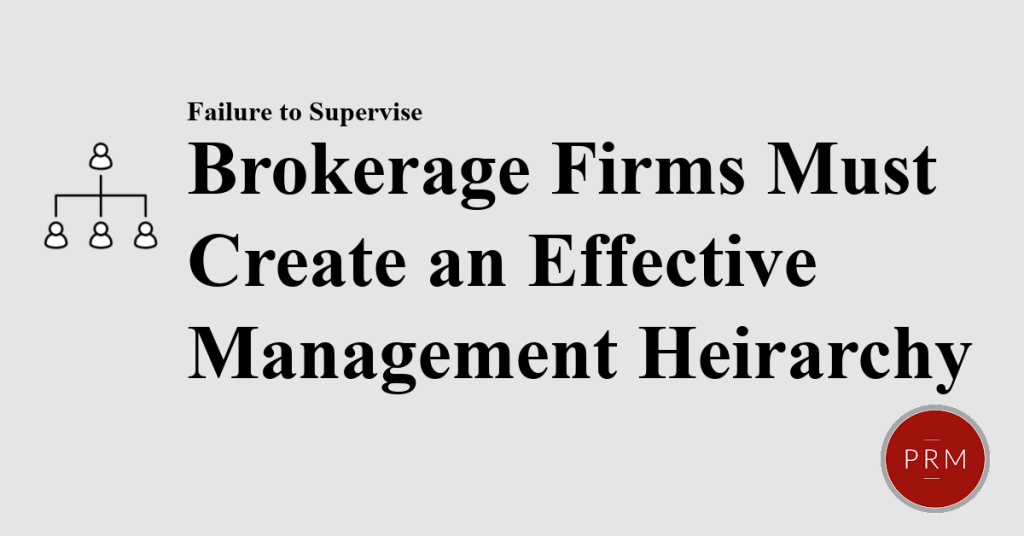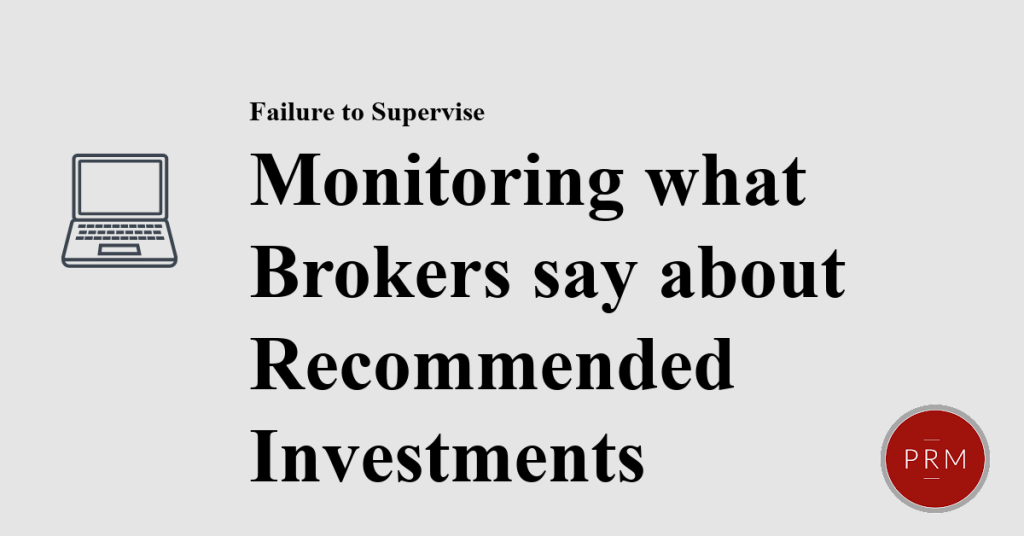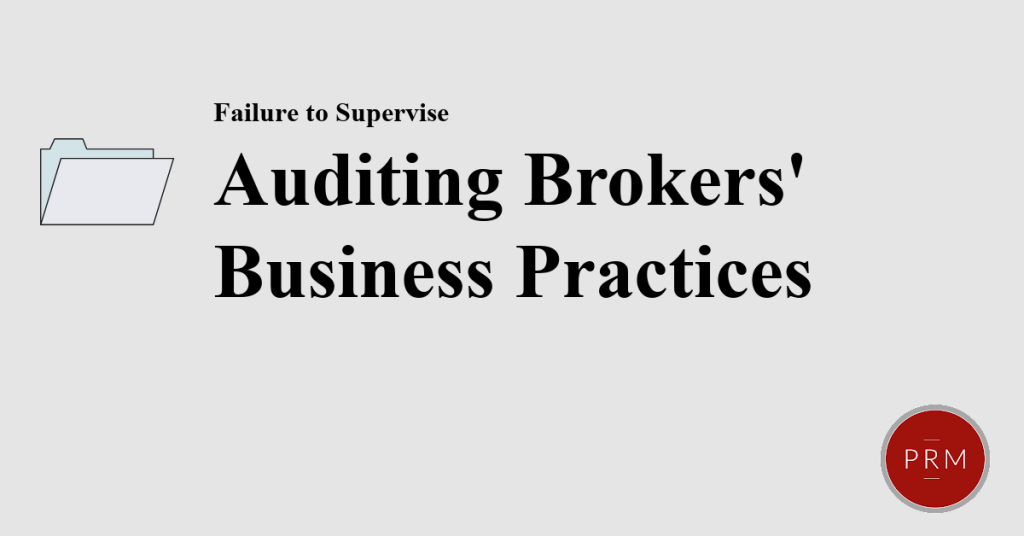Failure to Supervise
Overview

Broker-Dealers must Perform Pre-Hire Due Diligence on the Brokers they Hire

- Education
- Work history
- Past complaints investors made about thee prospective broker’s conduct
- The circumstances behind past terminations from previous employing broker-dealers
- Criminal history
- Bankruptcies
A failure to perform robust pre-hire due diligence could expose a broker-dealer to liability.
Broker-Dealers must Monitor Transactions in Investor Accounts

Brokerage firms should implement electronic supervisory systems that monitor transactions in investor accounts. These systems should flag anything that falls outside of a specific investor’s investment objective and risk tolerance. That way, the firm can try to ensure that the recommended transaction is suitable for the investor. This should not only apply to individual transactions. But it should also apply as it relates to ensuring proper asset allocation.
Example:
Suppose an investor has a conservative risk tolerance. And a broker attempts to place more than 20% of the investor’s assets in speculative stocks. This allocation in speculative stock does not comport with the investor’s risk tolerance. A functioning supervisory system would automatically flag, and potentially halt those transactions until a manager discusses issue with both the broker and the investor.
Example:
Suppose an investor has a commission-based account. And the broker collects a commission on every trade he makes in a customer’s account. The broker then places dozens of trades in a week, generating exorbitant commissions. A compliant supervisory system ought to flag that trade volume and potentially halt the transaction until after a supervisor speaks to both the broker and the investor.
Broker-Dealers must Monitor Correspondence

Firms also have an obligation to monitor correspondence as a function of their duty to supervise. Correspondence, including email, letters, and text messages, often provide important representations about the investor’s accounts, investment objective and risk tolerance. To help ensure these representations are accurate, compliant brokerage firms have complex systems that monitor correspondence that automatically flags certain key words that might suggest nefarious representations. Once flagged, a supervisor reviews the flagged correspondence.
Example:
Broker-Dealers must Inspect and Audit their Brokers

FINRA rules require broker-dealers to regularly inspect all the securities businesses. The firm must design these inspections so that they detect and prevent potential securities violations. In practice, broker-dealers should (at least annually) audit and inspect the business practices of their brokers.
Example:
Suppose a financial advisor convinces and investor to sign account forms while they are blank. After the forms are signed, the financial advisor fills in information sufficient to purchase an investment for the customer that generates a substantial fee. Meanwhile, the investor does not know about the transaction because he signed the form while blank. The financial advisor keeps these blank, but signed forms in a folder on his desk.
The broker-dealer then conducts an inspection of the financial advisor’s branch but does not bother inspecting the financial advisor’s desk sufficient to locate these blank, signed forms. Later, the investments lose value.
In this example, the broker-dealer might be found liable in a FINRA arbitration for failing to supervise because it did not perform an adequate inspection.
*The Law Offices of Patrick R. Mahoney is a full service law firm with extensive experience litigating cases involving a host of securities-related issues. This page is for information purposes only and does not constitute legal or investment advice; nor is it a comprehensive explanation of all supervisory issues. If you believe you have a claim, you should speak to competent counsel to better understand your options. Or, contact us.*
